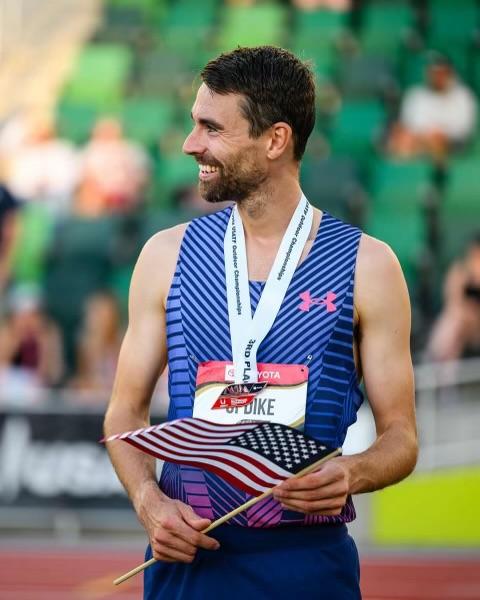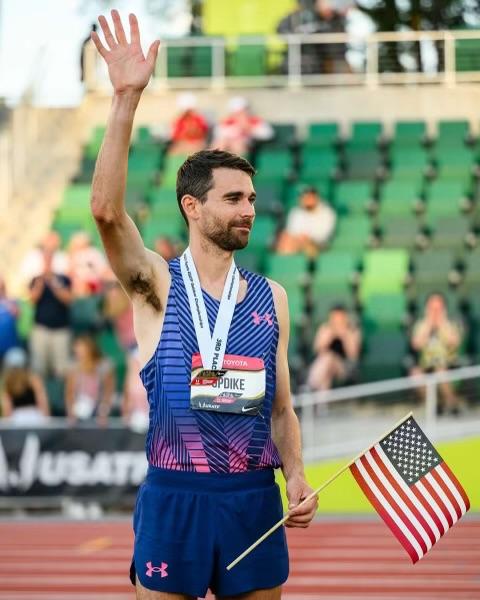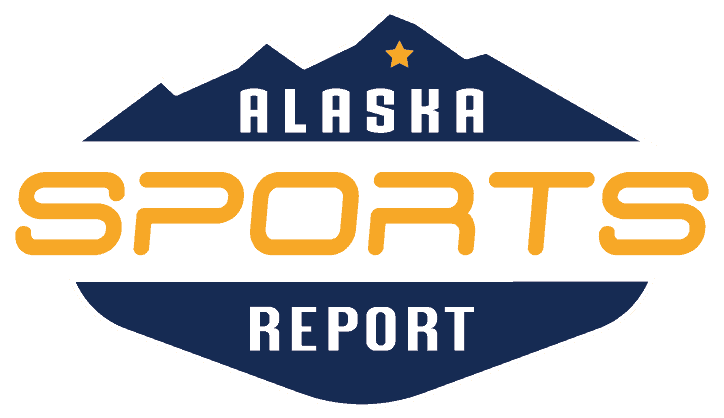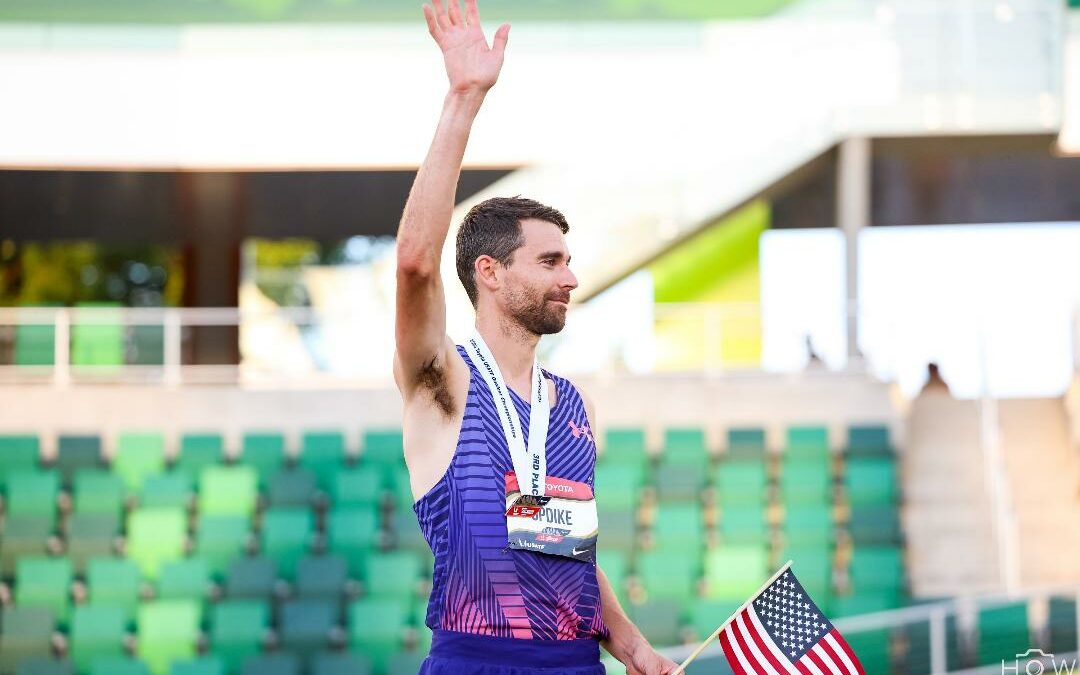
Isaac Updike
For so long, steeplechaser Isaac Updike of Ketchikan was the unlikeliest of suspects to achieve running glory on a national stage.
He didn’t race high school track, but instead played soccer in spring.
He was a walk-on, beginning in 2010, at Eastern Oregon University, which competes in NAIA, among the lowest of rungs on the college sports ladder. That’s where coach Benny Welch, a former Alaska cross country champion for Wasilla High, gave him a chance that Updike turned into an NAIA steeplechase national title.
He began his “professional” career working part-time jobs while he trained, so he was not fully sponsored as a young pro. He trained in Eugene, Ore., then with the New York-based Elite Empire Track Club, where he showed promise – fifth in the 2021 U.S. Olympic Trials – before two bouts with COVID wrecked his 2022 season. He has landed at altitude in Flagstaff, Ariz., where he trains with the Dark Sky Distance group on a deal with Under Armour, his third shoe sponsor.
In short, his running resume has been solid, but not jaw-dropping.
Yet he kept grinding, making incremental gains.
And Saturday night in Eugene, at 31, after a 13-year journey through the college and pro ranks, Updike arrived.
He finished third at the USA Track & Field Championships – his first podium at that meet – and seems a lock to compete in the World Championships in Budapest, Hungary, next month.
Updike clocked 8 minutes, 17.69 seconds, just .22 off his personal best, to snatch the country’s final World Championship berth.
“When I started this running journey, I never had big aspirations like, ‘I’m going to be a pro, or a World Championship runner,’ ” Updike said Sunday by phone. “I didn’t even know Worlds was a thing.’’
All that changed generally over the course of 13 years and specifically in seven-plus laps over barriers and a water jump on the track at Hayward Field on the University of Oregon campus.
“It’s fantastic,’’ Updike said. “It seems like I’ve been so close a couple times, that it doesn’t feel out of place, or surreal. It’s validation, I guess.’’

Photo by Johnny Zhang
To step onto the podium, though, required Updike to make a fortuitous escape from traffic early in the race and to kick from the dreaded fourth place to the coveted third place in the homestretch.
With fewer than six laps to go, Updike found himself in eighth place among 14 finalists, running on the rail, behind Anthony Rotich and eventual winner Kenneth Rooks. Instinct and experience told him that was a dodgy position, so Updike slipped through an opening between Rooks slightly in front of him and Matthew Wilkinson slightly behind him. He moved to the relative safety of Lane 2.
Ten seconds later, Rotich checked up in Lane 1 before awkwardly hurdling a barrier and sending Rooks, who was just behind Rotich, sprawling to the track. Updike, in Lane 2, escaped unscathed.
“I don’t know if you’d call it luck, experience or fate,’’ Updike recounted. “The barrier before, I was behind Rotich and Rooks, and I thought, ‘I shouldn’t be in this spot.’ “
Updike soon worked his way forward in the field. With one lap to go, he sat fifth, and soon edged up to fourth. He remained in fourth emerging from the final water jump and into the last curve. Then, he trusted the advice of his coach Stephen Haas, who counseled patience.
“He told me, ‘Be smart, and be the last person to make the move. React, don’t be the first one to move,’ “ Updike recalled. “I was thinking, ‘Don’t freak out, be patient.’ I didn’t want to risk one of the top three spots by trying to win (and getting out-kicked).’’
Approaching the final barrier, Updike remained fourth, behind Mason Ferlic, the 2021 Olympian who led at the bell. Updike’s sound technical hurdling made the difference as he smoothly negotiated the barrier while Ferlic appeared to stutter-step before the barrier and slowed.
“I did execute it,” Updike said of clearing the last barrier, “and I beat him to the ground.’’
Updike pulled away from Ferlic to reach his first career podium at nationals.
Updike’s former Empire Elite teammate, Kyle Merber, an analyst for Citius Mag – and the first person to run a sub-4 mile on Alaska soil – marveled that his friend’s journey finally reached the promised land.

Photo by Johnny Zhang
“He’s been all over,’’ Merber said on Citius Mag’s recap on YouTube. “He’s run for so many different brands and trained with so many people, and it just feels good that at no point did he quit, and it validates all that work.’’
Updike will be the first Alaskan to qualify for a World Championship since former Kenai Central star Allie Ostrander qualified in the steeplechase in 2019.
Rooks delivered a remarkable comeback by roaring back from last place – by more than 20 meters – after his fall to win in a PB of 8:16.78. Benard Keter earned second in a PB of 8:17.19.
Updike has not achieved the World Championship standard of 8:15.00 or faster, but his world ranking, which will improve after his third-place finish, should easily clinch his spot at Worlds. Athletes can qualify for Worlds by reaching the standard in their event or owning a high enough world ranking to book a ticket to Budapest.
Updike’s performance continued what has been a career year for him. He has reeled off personal bests in the steeplechase, 1,500 meters, 3,000 meters and 5,000 meters.
Updike said he will travel to Europe this week to train at altitude in St. Moritz, Switzerland, while sandwiching that work around his Diamond League debut for a steeplechase in Poland and perhaps an additional 1,500-meter race.
His running journey has been long and grinding, filled with a succession of small goals achieved and disappointments endured. And now Isaac Updike has arrived.
He’s always been in it for the long run.

